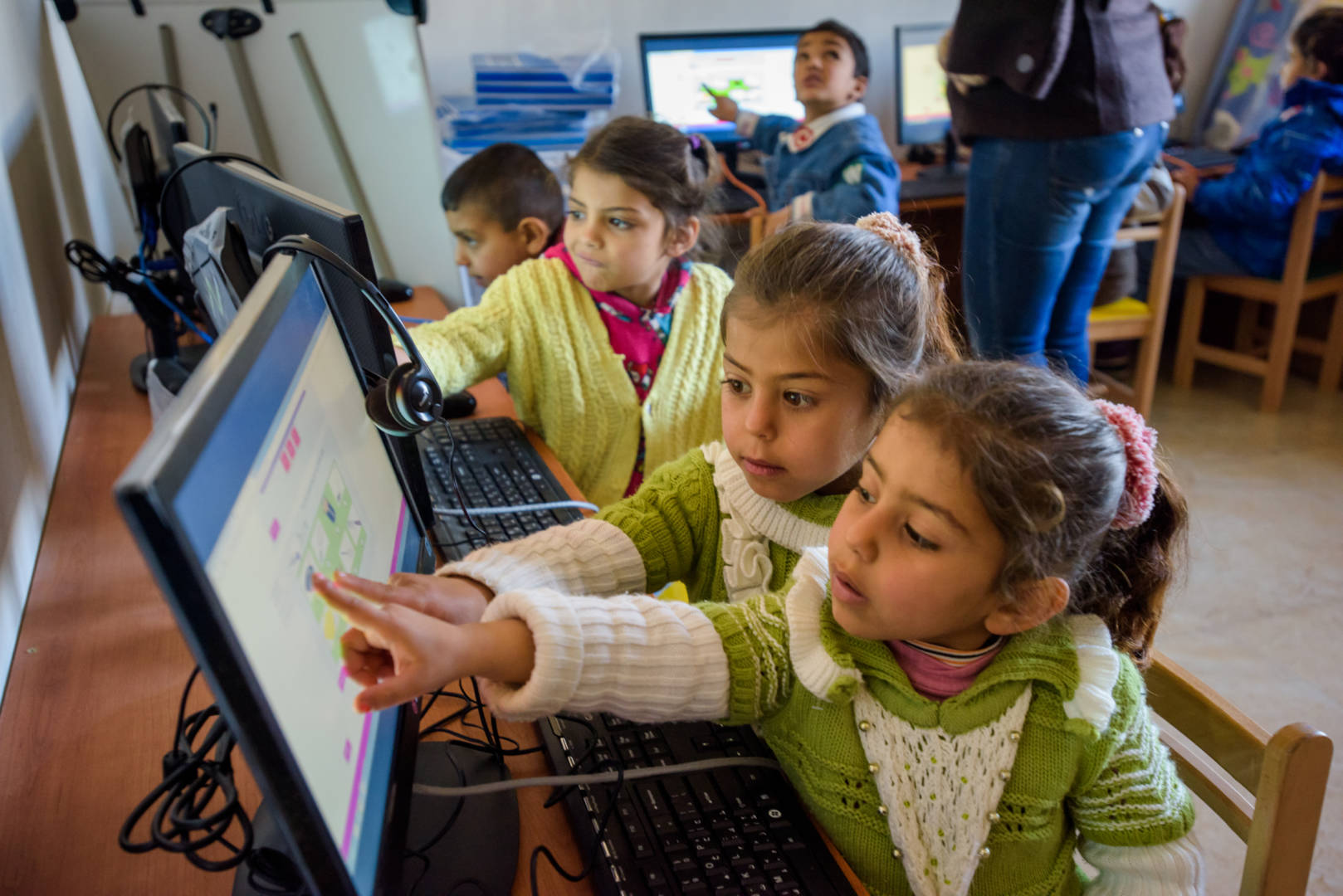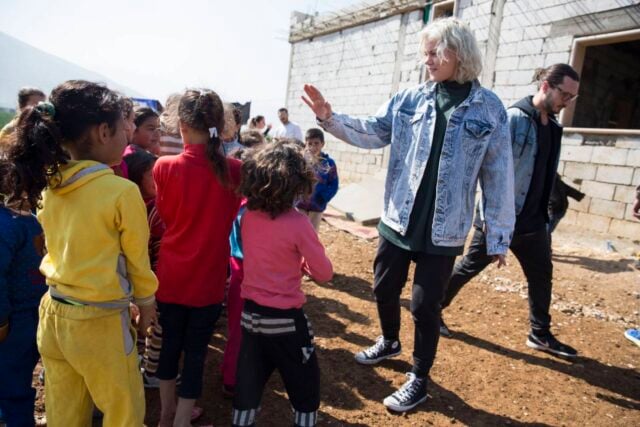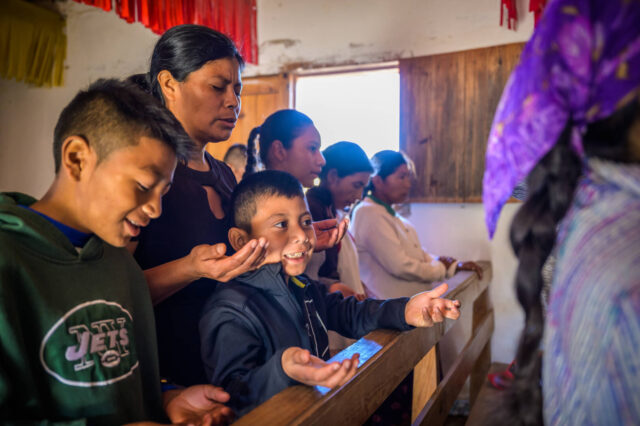For more than 15 years, the American Academy of Pediatrics had advised that kids younger than 2 avoid screens and kids older than 2 limit their screen time to two hours a day. That is a stark contrast to the average 7 hours a day that kids today spend on entertainment media.
But on October 21, they announced new guidelines for kids’ screen time. Instead of blanket recommendations like before, they’ve been further broken down by kids’ ages and the type of screen time. Overall, they’re recommending “that parents and caregivers develop a family media plan that takes into account the health, education and entertainment needs of each child as well as the whole family.” They also launched a new online tool for family media planning.
So let’s recognize that it’s not about shutting off all screens all the time — not all screen time is the same. Use screen time to teach your kids valuable life lessons. To help them learn more about the world. To spend time together. Use screen time for good.
1. LEARN
Use screen time to help your kids understand what is going on in the world.
With our 24/7 news world, it’s nearly impossible to shield your kids from current events. Did you know that news outlets like Time Magazine, The Washington Post, PBS, and CNN have news written for kids and teens? But not everything has a filter like these do.
So how do you talk with your kids about something difficult they have seen or heard in the news or on social media? How do you prepare them for what they might hear at school or while talking with friends? Here are tips on how to talk to your kids about these tough issues.
What else can you do?
- The internet holds a wealth of knowledge. Use it to teach your kids about what life is like in other countries.
- Here is a quick family activity with a powerful lesson. Watch this video: What would you take? What if war broke out in your city and you had to leave? Write down a list or draw what you would each want to take with you. Then ask each other: Why did you make your choices? What was hard? What was easy? How did you feel?
- Help your kids find fun, educational videos to watch. Common Sense Media has this list of the 12 best YouTube channels for kids and teens.
Learning in action: Read about World Vision’s innovative corporate partnership that provides access to technology in rural African classrooms. These schools that once lacked basic supplies like chalk and paper are now helping students learn effectively.
2. PRAY
Use screen time to grow your kids’ faith.
Prayer is a powerful, free way to make a global impact. Join us this month in praying Psalm 34:14 over the people of South Sudan. Armed conflict and food shortages make South Sudan one of the most difficult places to live right now.
Turn from evil and do good; seek peace and pursue it.—Psalm 34:14 (NIV)
Tell your kids about some of the struggles kids and their parents are going through in South Sudan. Then help them pray:
- Dear Heavenly Father, help the kids in South Sudan. Provide them with food and water if they do not have it anymore.
- Protect kids and their parents from people who are fighting around them.
- Take care of the kids who have had to leave their homes. Watch out for them and help them find safe homes.
- Help families who have had to split up find each other again.
- More than anything, Lord, please bring peace to South Sudan so that everyone can go home and be safe.
What else can you do?
- Do your kids need ideas for what they should pray about? Here is a free poster with 10 examples of prayers for kids on topics like loving others, wisdom, and a thankful heart.
- Jesus shows us how to care for the poor and oppressed. Share with your kids about what the Bible has to say about God’s heart for those in need.
- Although there is no perfect formula, here is realistic advice from Focus on the Family on starting a family Bible-reading time.
3. PLAY
Use screen time to help your kids have fun.
When your kids play fun games, they might not even realize they’re learning! So find games that also grow their minds.
Have them walk a mile in another kid’s shoes. See how they would survive as the head of a child family in Rwanda in this multiple choice activity. Have them each try it a couple times to see how their choices change the outcome.
You can also print, make, and play The Game of Life as a family. Each of you will step into the shoes of a child from another country and see what their life is like.
What else can you do?
- Download World Vision’s Play it Forward Challenge with 10 fun family games that help your kids learn to pay it forward.
- Watch sports as a family. Talk about the teamwork it takes to succeed. Even in individual sports, there are lots of people behind the scenes like the coaches who help each athlete do their best. Discuss what good sportsmanship does and does not look like. Point out what you see during the game.
- Games for Change curates games about social issues like human rights, health, and gender. You can search for online games by topic or suggested age.
Kids at play: Whether they live in a rural African village or American suburbs, kids are kids — and kids everywhere love games. See what kinds of sports and games kids play around the world. Or find out more about Raya, the New Sesame Street™ character who helps save lives with handwashing and hygiene.
4. CREATE
Use screen time to make something.
You don’t have to get on a plane to go global with your family. Use your screen time to bring the world to your dinner table and give your kids some fun conversation starters.
We have gathered three authentic, easy recipes for you and your family — from Kenya, China, and Bolivia — along with dinner prayers and a slideshow of children in each country.
What else can you do?
- Help your kids create their own toy. Need ideas? Here is a list of how to make 80+ DIY toys.
- These free computer programming lessons can help your kids learn to draw, color, and animate what they create using basic JavaScript coding. Have a daughter? Check out Girls Who Code. Their mission is to close the gender gap in tech careers.
- Create an online storybook that you can share on social media. This is a great chance to talk about how much and what you share online.
Kids make their own joy: Plastic bags, rocks, cardboard: Sometimes the most fun comes from regular stuff. See what kids from around the world have made.
5. GIVE
Use screen time to raise generous kids.
No matter how old your kids are, they can use their time, treasure, and talents to change the world — and themselves.
It’s easy! They can use their passion to raise funds for clean water, child protection, or healthcare through an event, special occasion like their birthday, or just because. Here’s how.
What else can you do?
- Speak up! Your kids have influence. More than they think. Use screen time to stay in the know on current issues and to influence decision-makers on behalf of the poor.
- Help a kid surpass his goal! Caleb read about kids his age who didn’t have clean water to drink. So he decided to run to raise money for them — one mile at age 8, a 5K at age 9, and a half marathon at age 11. “Some days I didn’t want to get up [to train],” he said. “But then I’d think about kids who had to get up and walk, carrying heavy water.” So far, he’s raised over $50,000.
- Become a pen pal for a child in a different country. When you send a message online, a World Vision staff member in your child’s country prints it out and delivers it to your child. It is a great way to show you care and learn about their life. Plus it is quick and easy for you!
Generosity in action: 11-year-old Tyler has turned his big dreams of bringing clean water to communities in Africa into reality. Learn about his simple idea that made a big impact and how other kids like him are changing the world — and themselves.
BONUS:
Tips for you to help manage your kids’ screen time:
- Kids are now growing up in a digital age. Here are a few tips from the American Academy of Pediatrics to help you teach your kids healthy screen habits.
- You teach your kids how to confront dangers in the real world. So you should also prepare them for life in the online world. Focus on the Family and the National Center for Missing & Exploited Children have a great series with tips on online safety.
- How can you help your kids think biblically on topics like movies and TV shows? Practice what you preach, and get other influential adults involved.


